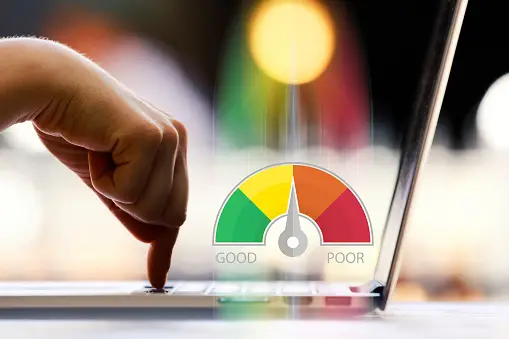Building credit is an essential first step toward securing your financial future in the modern financial world. This may seem like a difficult trip for first-time users, if you’re new to managing your finances and credit. However, Establishing a credit score for the first time is possible if you have the appropriate information and techniques.
In this blog post, we will help you understand what credit is and how you can establish a credit score for the first time.
Let us first define Credit

Credit is essentially a loan. Credit cards are among the most popular forms of credit available to customers. Your CIBIL score will determine the type of credit you are eligible for. From a lender’s standpoint, the higher it is, the more creditworthy you are.
What Makes Credit Important?
Having excellent credit makes it easier to take advantage of many financial options, such as credit cards, loans, and low-interest rates. It may also affect your chances of getting insurance, renting an apartment, and even getting hired.
How to Establish a Credit Score for the first time?
Now let’s explore some essential tips to help you establish a credit Score from the Scratch.
- Get a credit card that is secured
When establishing credit for the first time, a secured credit card is a great choice. A secured credit card offers a low-risk method of proving responsible credit usage because you must pay a deposit equal to your credit limit.
- Small durable Loan
Lenders won’t be able to consider your credit history if you have never utilized credit before. You can establish a credit score by taking out a smaller durable loan like an EMI for a Mobile, TV, or laptop. Or any other loans that can be paid hassle-free.
- Buy now pay later feature
Any e-commerce site that offers a Buy Now Pay Later option will treat it as a credit facility and report it to the credit agency. You can start creating your credit profile by getting credit. You can get this feature on many e-commerce platforms such as Flipkart and Amazon.
- Add yourself as an Authorized user
Adding yourself as an authorized user to someone else’s credit card account is another way to improve your credit. However, since their consumption patterns will affect your credit score, make sure that the primary account holder has a history of careful credit usage. You can consider this only if you have a trusted family member and friends who have a great credit score.
- Use credit cards sensibly
You might be getting offers for credit cards with greater credit limits and cash-back features if you are a salaried person. Knowing if you need so many credit cards or not is the key. To build a positive credit history, it is advised to start with one credit card and use it properly.
- Examine Loans for Credit-Building
Credit-builder loans are Loans intended especially to assist people in establishing or raising their credit ratings. You would have to pay back this loan over a predetermined length of time in installments since it is secured by a locked savings account. You would have access to the money in the savings account as soon as you paid back the loan on schedule.
Developing Good Credit Practices
After establishing a credit score, be careful to keep up good credit practices to keep your credit profile high and get access to credit in the future.
- Make On-Time Bill Payments
One of the most important aspects of establishing your credit score is paying your debts on time. For peace of mind, set up automated payments or reminders so you never forget a deadline.
- Maintain a Low Credit Utilization
Your credit score can be improved by keeping your credit utilization ratio i.e. the ratio of the amount of credit you use to the total amount of credit available. To show that you are managing your credit responsibly, try to maintain your usage below 30%.
- Keep a Regular Eye on Your Credit Report
By keeping a regular eye on your credit report, you can quickly spot and correct any mistakes or inconsistencies. Every year, you have the right to one free credit report from each of the main credit reporting agencies. Make the most of this chance to keep track of your credit status.
- Keep an eye on the credit behavior of your joint Applicant
If you are a Loan Guarantor or a Joint applicant, Make sure that there should not be a Loan Default, if such a case arises the credit score of the joint applicants will be affected, on the other hand, if the primary borrower fails to pay the loan, the guarantor is liable to pay the remaining dues and in case if the guarantor fails, it will affect the credit score of the guarantor and the primary borrower both.
Upshot
In conclusion, building credit as a new user is essential to being financially independent. You can create a strong credit foundation that leads to a wide range of financial options by learning the principles of credit, using the right methods and instruments, and developing good credit habits. As you set out on this path to financial empowerment, keep in mind that perseverance and hard work are essential.
Disclaimer: The information provided in this blog post is intended for general informational purposes only.







